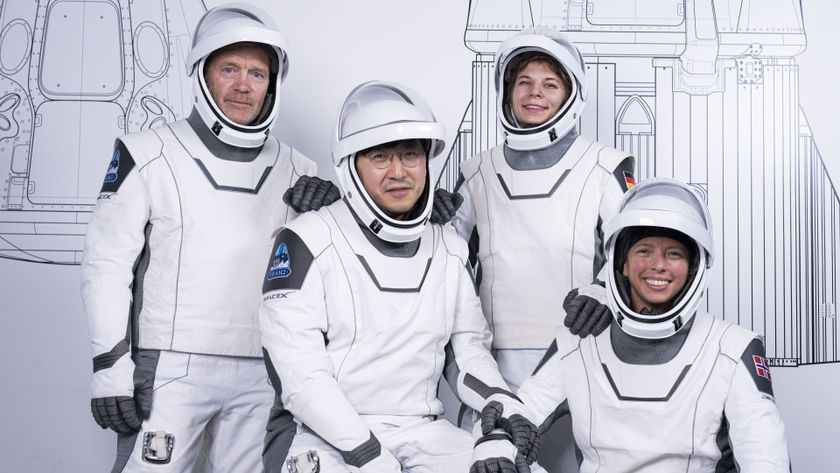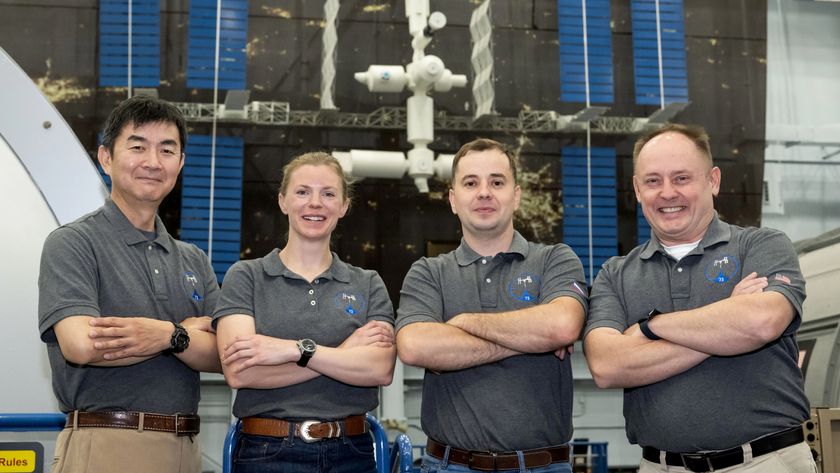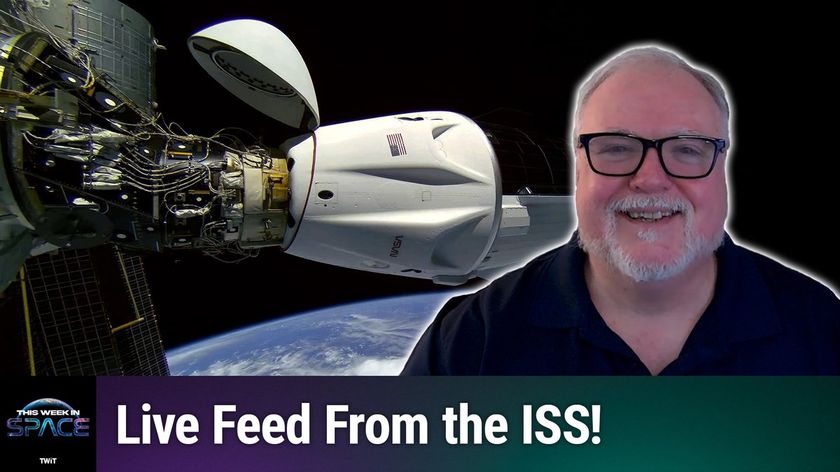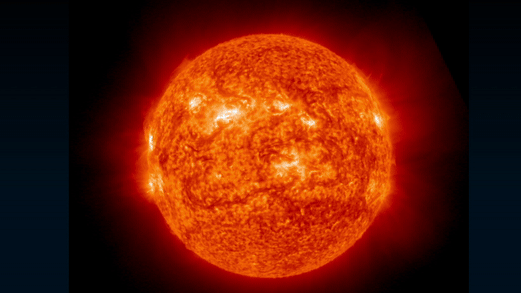Trip to Mars Could Throw Off Astronauts' Balance
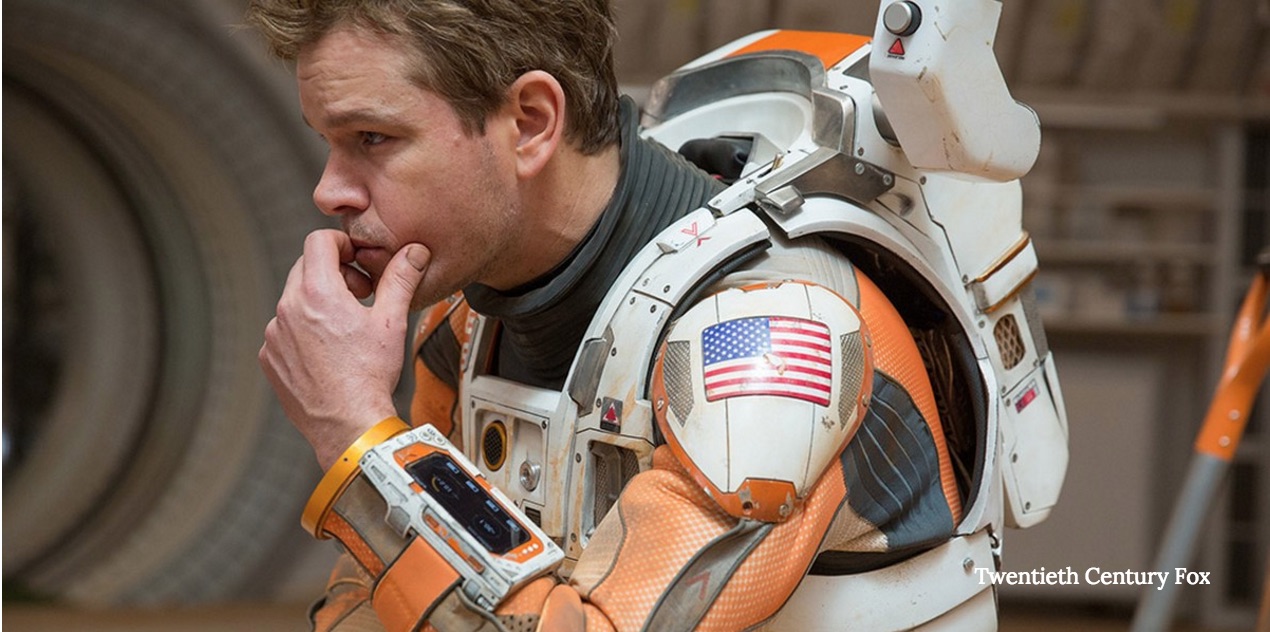
After months in space, your crew has finally made it to Mars, but there's a nasty readjustment awaiting all of them.
Living in zero gravity during the Earth-Mars transit will have some pretty harsh side effects, but most urgently they'll have to readjust to gravity again. And those first few days on Mars will be busy as the first Mars explorers get their bearings, prepare their habitat for the stay and begin thinking about setting up experiments.
You can therefore see why NASA is so intent on figuring out how to help astronauts stay healthy and happy after long stays in space so they can adjust quickly for life on Mars. We already know that a six-month stay on the International Space Station wreaks havoc with bone and muscles, but at least when the space station crew return to Earth they have a team of medical professionals to look after them. The first Mars astronauts will have no such luxury.
Now, a new "bed rest" study detailed in the journal NeuroImage suggests that astronauts could also see changes in the brain, although it has yet to be proven in flight. For bed rest studies, brave volunteers agree to spend weeks or months in a head-down position at a facility in Texas to simulate the effects of zero-gravity. While the pay is pretty sweet for lying in bed — one study paid $18,000 for 70 days in a prone position — one volunteer said that it was hard to stay upbeat amid the isolation.
RELATED: A Trip to Mars Could Damage Your Brain
"While the days were punctuated by regular meals, exercise, vital-sign readings, and intermittent testing, the bulk of my time was empty," Andrew Iwanicki wrote in a Vice report in 2015. "Even the testing became increasingly monotonous: I was often asked to lie completely still while data was collected."
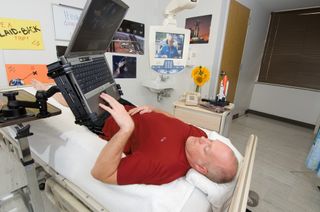
Rachel Seidler, of The University of Michigan and principal investigator of the study, noted that in some cases the bed rest group and the control group showed little change between them. A rotation test, for example, where the participants mentally rotate objects to find their correct orientation, showed that both groups got better with time. The bed rest group actually improved more as a whole when compared with the control group, she said, but it was likely because they were assessed more frequently and therefore had more practice.
Get the Space.com Newsletter
Breaking space news, the latest updates on rocket launches, skywatching events and more!
What was more interesting were the changes to vestibular system when put through extended periods of simulated zero gravity. The vestibular system helps our brain achieve a sense of balance by using inputs from the eyes and the inner ear. It's known that bed rest volunteers' sense of balance gets worse over time, but this new study was able to see what happens in the brain during the experiment. The researchers measured the volunteers' "resting state functional connectivity" with an MRI scanner; this term refers to how well different networks in the brain communicate.
RELATED: Space Prunes for Healthy Astronaut Bones?
"We found increasing connectivity in sensory motor networks," Seidler told Seeker. "That means the brain regions that are controlling movement and processing sensory information for balance and locomotion, during the course of bed rest, start to communicate more than they normally would."
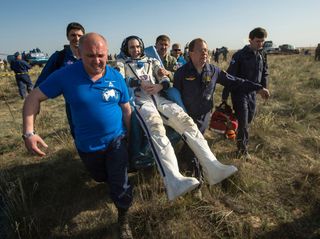
"We think this is actually, potentially, a reflection of how the brain and the body are affecting to this bed rest environment," she said. "If you imagine reduced sensory input, one way the brain responds to turn up the volume, if you will. That's what we think is happening."
A flight study on the International Space Station is also ongoing, called Neuromapping, and the researchers are about halfway through the data collection. Seidler said the researchers expect that any changes in the brain would be "longer-lasting and more profound" than what is seen in bed rest, since the environment is more foreign. But that remains to be seen.
NASA has many human research investigations currently ongoing on the space station.
RELATED: Mars Astronauts: Don't Care Where, Just Don't Kill Us
Another test studies astronauts' and cosmonauts' balance through simple walking and moving exercises in Kazakhstan, just minutes after they land. Data collection is ongoing, said principal investigator Jacob Bloomberg, a senior research scientist at NASA's Johnson Space Center in Texas.
The hope is that, in the future, astronauts' brains could be trained in space via a few techniques to trick them into thinking they're in a gravity environment, thereby making the transition from space to Mars quicker and less risky. Bloomberg suggests that perhaps a treadmill, like the one in operation on the space station (pictured here), can be equipped with a range of programs could be used to create a "different combination of sensory disturbances," thereby tricking the brain into thinking it's in a gravitational environment.
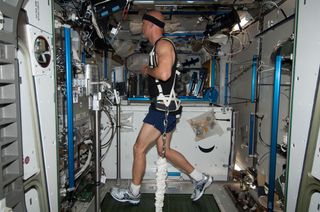
For now, the agency is breaking down the jobs that astronauts need to do into "functional tasks" and trying to determine what optimum performance would be. Then, they look at the changes in astronauts' performance and correlate those changes with physical changes in the body and brain. It appears that things like upper body strength doesn't change that much in space, but others with a "strong postural component" are greatly affected, he said.
There's some speculation about how these problems can be addressed. Some early-stage studies on stroke patients, for example, suggest the brain can be stimulated and recovered using brain modulation techniques — in the form of non-invasive electrical or magnetic stimuli. Could these methods be used to speed up brain re-adaptation to a gravitational environment? "That certainly is a possibility for future investigation," Seidler said.
Another interesting thing to consider, she said, is rodents that have been used in spaceflight experiments show their behavior recovering in a couple of weeks after landing back on Earth, even though their brains have not physically reverted to a pre-spaceflight condition. The upside is it appears the brain is compensating or using different networks to adapt, but exactly how this works remains a topic for future study.
Originally published on Discovery News.
Join our Space Forums to keep talking space on the latest missions, night sky and more! And if you have a news tip, correction or comment, let us know at: community@space.com.

Elizabeth Howell (she/her), Ph.D., was a staff writer in the spaceflight channel between 2022 and 2024 specializing in Canadian space news. She was contributing writer for Space.com for 10 years from 2012 to 2024. Elizabeth's reporting includes multiple exclusives with the White House, leading world coverage about a lost-and-found space tomato on the International Space Station, witnessing five human spaceflight launches on two continents, flying parabolic, working inside a spacesuit, and participating in a simulated Mars mission. Her latest book, "Why Am I Taller?" (ECW Press, 2022) is co-written with astronaut Dave Williams.
